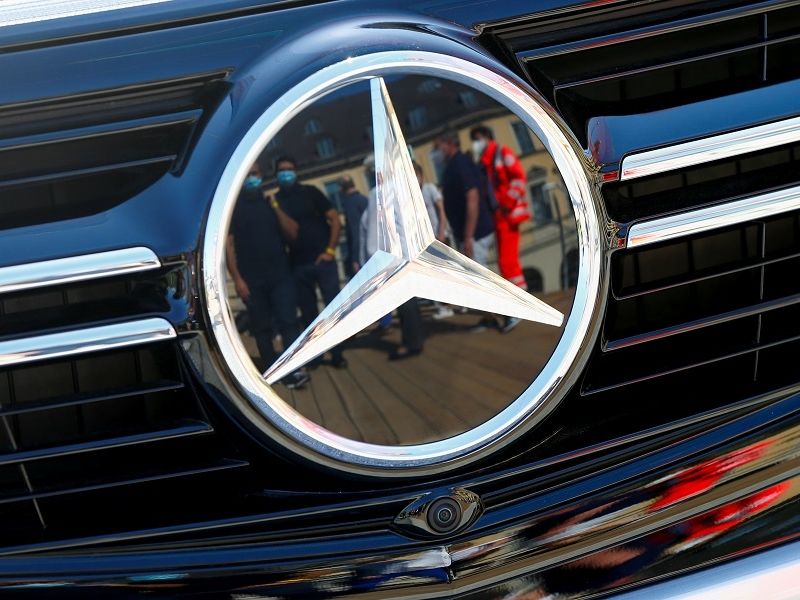
Daimler reported a higher third-quarter profit despite a 30 percent drop in Mercedes-Benz vehicle sales due to the microchip shortage, as the company focused on more profitable cars and cut costs.
Quarterly operating profit was 2.6 billion euros ($3 billion), up 18 percent from 2.2 billion euros for the same period in 2020, Daimler said in a statement on Friday.
Revenue was almost flat at 40.1 billion euros versus 40.3 billion in the third quarter of 2020.
Daimler said it expects chip supplies to improve in the fourth quarter. It said the shortage will continue in 2022 but should improve compared to 2021. The company has previously warned the global chip crunch could last into 2023.
“This [chip] issue will continue to be a top priority for us moving forward,” CFO Harald Wilhelm told analysts during a conference call on Friday.
Daimler now expects Mercedes to post slightly lower sales in 2021 versus 2020, but said its forecast of an adjusted margin of between 10 percent and 12 percent for the unit remained unchanged.
The company also maintained its forecast of a margin of 6 percent to 8 percent for its Daimler Trucks unit, which is due to be spun off in December.
Daimler said it had kept a “tight grip” on costs during the third quarter as it focused on more profitable models including in its Maybach and performance AMG brands.
Despite the drop in Mercedes’ sales, high-end vehicles including Mercedes-Maybach, Mercedes-AMG, the S-Class and G-Class as well as the GLE and GLS showed strong growth, Daimler said.
A favorable sales mix and net pricing helped to partially offset semiconductor-driven supply constraints and raw material headwinds, it said.
Electric future
Wilhelm told analysts on Friday that Daimler is transferring development and manufacturing activities for compact and midsize combustion-engine transmissions to contract manufacturer Magna Steyr, so the company can focus on electrifying its model range.
“The future of Mercedes is all electric,” he said.
Daimler has stopped short of giving a hard deadline for ending sales of fossil-fuel cars but in July said that Mercedes will be ready to go all electric at the end of the decade, where market conditions allow.

